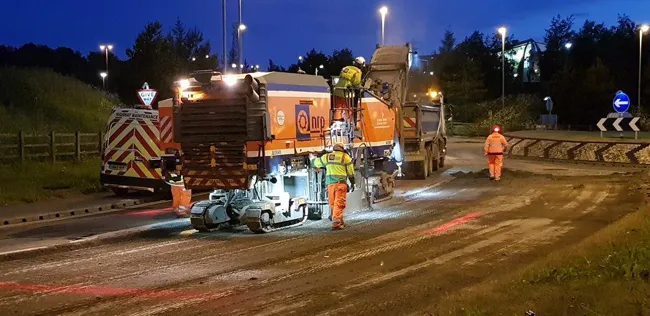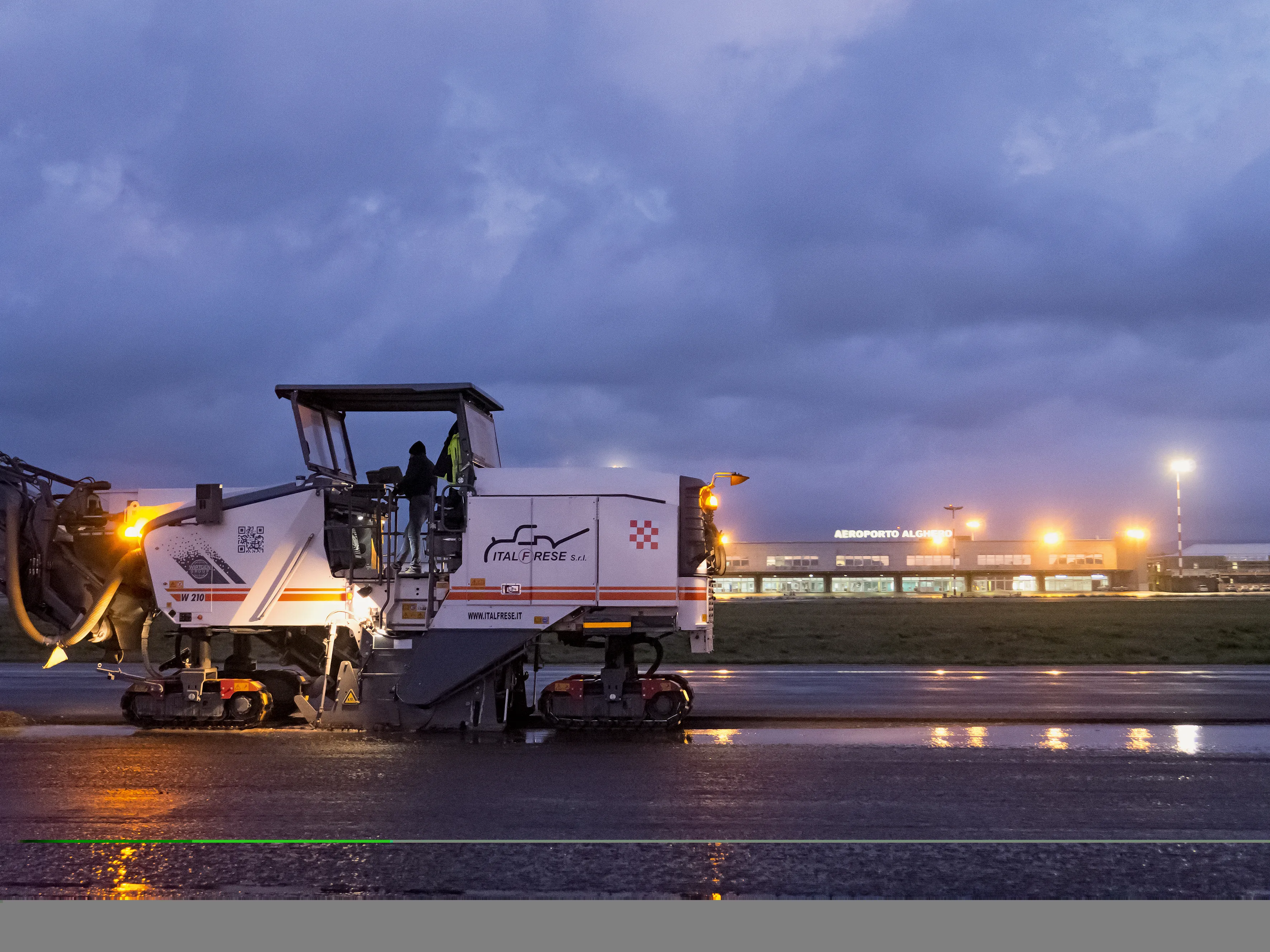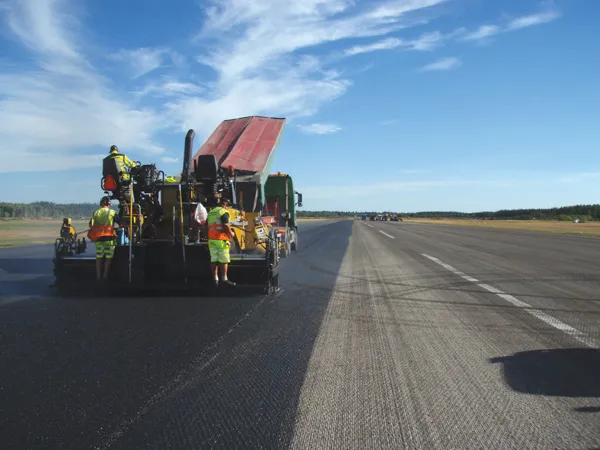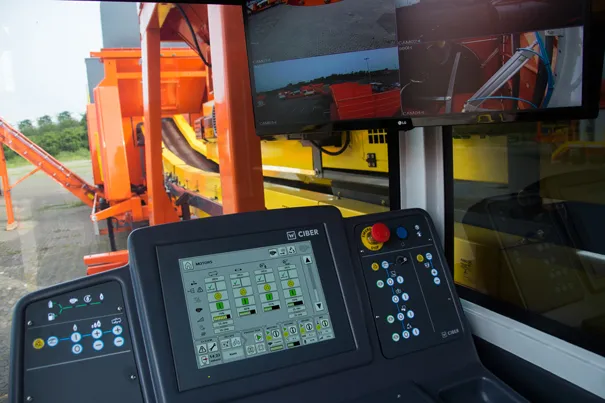
Located immediately off the M1 Junction 44, the A639 from Leeds Road to Pontefract Road connects the motorway slip road and a number of local distribution centres, including one for the Royal Mail.
The carriageway required extensive planning and adjustments as well as replacement of ironwork and kerbs. A key requirement was that it needed to be completed quickly and with minimum disruption to nearby businesses and the travelling public.
The
Using this fastidious 24-hour working approach, no time was lost between shift changeovers. During phase 1 of the works, Aggregate Industries laid a 5,855tonnes of asphalt and around 7,500m2 of geotextile in just one weekend. Saturday night alone recorded 3,872tonnes of asphalt laid in 18 hours. This averaged at an 215tonnes every hour during this period.
Aggregate Industries completed their work well ahead of schedule and delivered the project in just 54 hours compared to the 58.5 hours that were originally scheduled.
“To plane out Friday night and inlay 5,855 tonnes of asphalt by Sunday evening is simply unprecedented and we are incredibly proud of what we achieved on this project,” said Paddy Murphy, managing director of contracting services at Aggregate Industries.









